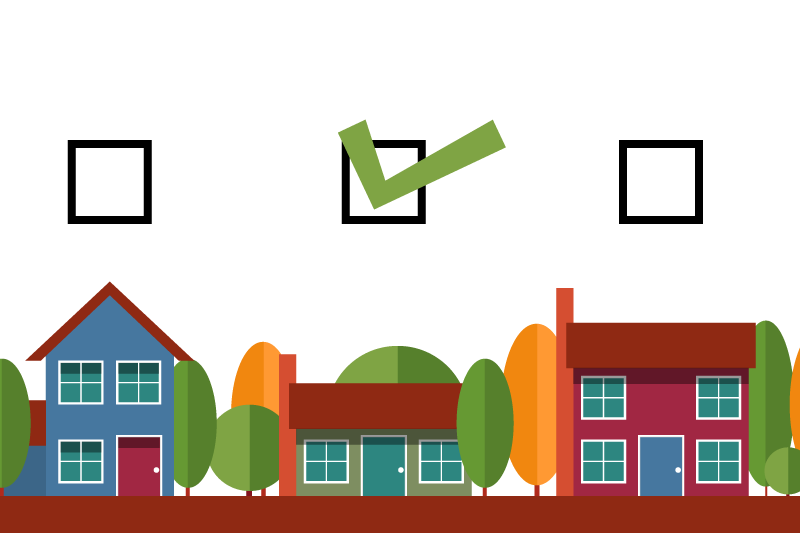House Hunting Homework

There is plenty to do to prepare for buying your new home, and once you’re actively touring homes or stopping into an open house, you can draw a blank when it comes time to ask specifics. Have some questions ready to prepare yourself so you won’t forget!
Open House and Walkthrough
-
- How long has the house been on the market, and are there any current offers? The length of time it’s been for sale can mean savings for you, or you may not want to bother if there are already multiple offers.
-
- Why is the current owner selling? This may seem like prying, and you may not get the exact answer, but it can add flexibility to price negotiations if the owner is ready for a fast sale.
-
- Ask for a seller’s disclosure before you think about making an offer. Check this list for your state’s info about what the seller must tell you before buying the house.
-
- How old is the roof? An older roof that has issues can either cost in the long run, or give you a discount on the sale price if it need replacing.
-
- If it isn’t obvious, ask when the house was last updated. With people living longer, some could have lived in the same home for fifty years and done nothing else besides redecorating.
-
- Condition of the home’s systems are important, so inquire about the age of the water heater, electric, plumbing, security and climate control systems.
-
- How is the home heated and insulated, including the attic? You need to have a good idea of what your utilities will cost, and heating can be expensive, whether it’s propane, electric, or geothermal if the insulation needs improving.
-
- Has the house been treated for pests on a regular basis? This can keep a lot of headaches at bay in the long run.
-
- What is included in the sale price, and are any warranties still active? You don’t want to be surprised when you start moving in and find out you have to buy all new appliances.
-
- You may be moving in the same general area, but a different city or county. Property taxes vary per location, so make sure you know how much you will be paying if you eventually purchase the home.
-
- If your prospective new home is in a historic district or homeowner’s association, there will be restrictions on how you renovate or build an addition, and fees for HOA. Ask your realtor for these details.
Pay Attention
-
- While you’re on your walkthrough, pay attention to traffic and nearby surroundings. Spend several minutes outside in the front and back yards and listen for any traffic noise, or a noisy possible neighbor.
-
- Is your prospective new home on a busy shortcut street in the mornings and evenings? Make time to discover for yourself and drive through on your way to or from work.
-
- Look closely at fresh paint jobs for cracks or possible mold. Sometimes, that new paint is covering up a problem.
-
- Check your mobile phone for signal strength. Different areas can be dead zones.
-
- Drive through the area one evening after most people are home from work. Is there plenty of parking available?
Using these opportunities to find all the information you can about a potential new home is imperative when you know you’ll be looking at many different homes on the market. Do your homework--keep a list of questions on your mobile phone’s notepad app so you won’t forget anything, or use a clipboard if you’re looking at multiple houses, keeping this information better organized. Since buying a home will most likely be your biggest investment, you want to be certain your money will be spent wisely.
Courtesy of Chester County PA Realtor Scott Darling.
Photo credit: www.greenspringenergy.com




